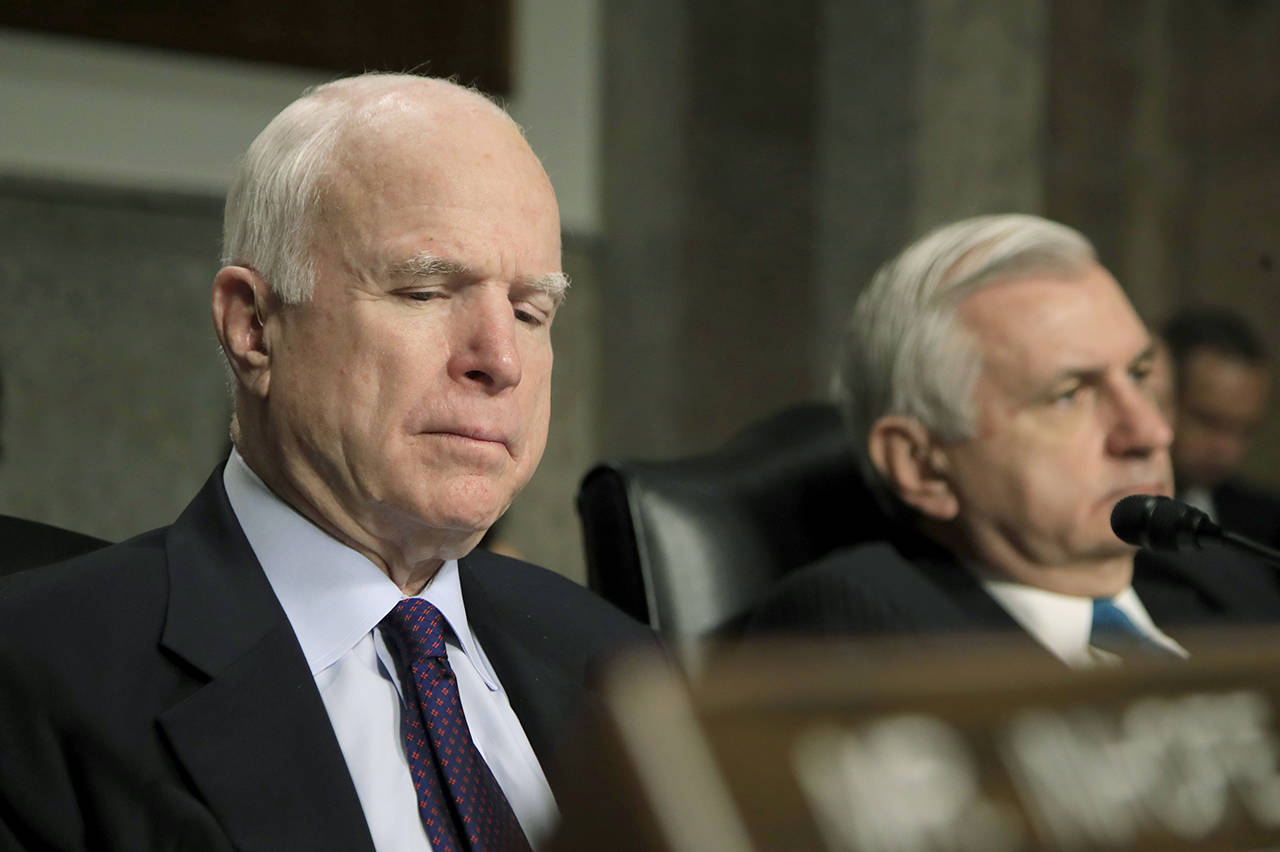McClatchy Newspapers
WASHINGTON — The breakneck pace at which the U.S. deploys its special operations forces to conflict zones is taking a toll, their top commander told Congress on Thursday.
Army Gen. Raymond Thomas, commander of U.S. Special Operations Command, called the rate at which special operations forces are being deployed “unsustainable” and said the growing reliance of the U.S. military on its elite troops could produce a dangerous strain. “We are not a panacea,” he told the Senate Armed Services Committee. “We are not the ultimate solution to every problem, and you will not hear that coming from us.”
About 8,000 U.S. special forces are currently deployed in more than 80 countries, Thomas said. Many are at the forefront of advising missions in Syria and Iraq as well as counterterrorism missions in Afghanistan. There are about 500 special operators in Syria.
Senators said they were worried about the military’s overreliance on special forces, who are increasingly being called on for missions outside their usual range. “Our combatant commanders around the world have developed a seemingly insatiable demand for the unique capabilities of our special operators,” said Sen. John McCain, R-Ariz., who chairs the Armed Services Committee.
The operational tempo is also wearing on the commanders, who in recent months have been called on to take the lead in anti-terrorism efforts and in monitoring the spread of weapons of mass destruction.
Sen. Tim Kaine, D-Va., said it was a “growing myth” that the U.S. “can use special forces and nothing else to achieve goals.”
Special forces are involved in operations against terrorist groups across the world, including the Islamic State and al-Qaida in the Middle East and al-Shabab in Somalia. They are also assigned to a wide range of other conflicts, from “countering Russian aggression to preparing for contingencies in Korea,” Thomas said.
Thomas said special operators had engaged in “continuous combat over the past 15 and half years.”
Military leaders are making a larger effort to “closely monitor the parts of our force that are under the most stress,” he said, adding that the command has “doubled and tripled” its efforts to increase mental health awareness and provide mental health services.
He declined to give specifics about the suicide rate among special operations forces. “I don’t want to get into the morbid statistics … but we are suffering,” he said.
Special Operations commanders expressed the same concerns two years ago, and demands have only increased since. “We can’t do everything,” then-Special Operations Command chief Gen. Joseph Votel said in 2015.
Speaking to the House Armed Services Committee on Wednesday, Thomas said the “unforecasted deployment tempo” was a challenge to manage, mainly because it went beyond what special operations planners had been told to expect.
Special Operations Command accounts for only 2 percent of the Pentagon budget. The situation presents serious readiness challenges for the future if troops are stretched thin and unable to recharge, top officials said.
“We’ve been operating at such a high tempo for the last decade-plus, and with budgets going down, what we’ve had to do is essentially … eat our young, so to speak,” acting Assistant Defense Secretary of Special Operations Theresa Whelan said this week.
Talk to us
> Give us your news tips.
> Send us a letter to the editor.
> More Herald contact information.

























